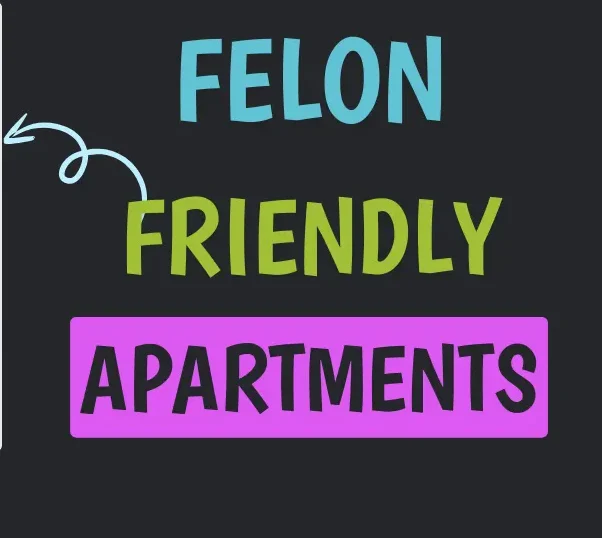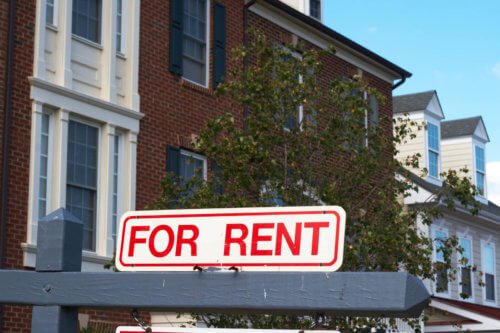
Second Chance Rentals For Sex Offenders Near Me
Mithas
- 0
Finding housing can be a challenging task for anyone, but for sex offenders, the challenge can be even more significant. Second-chance rentals for sex offenders near me are crucial in providing individuals with the opportunity to rebuild their lives after serving their time.
In this blog post, we will explore the housing challenges faced by sex offenders, legal considerations and restrictions, how to find second-chance rentals near you, the importance of disclosure and honesty, support networks and rehabilitation programs.
Success stories of individuals who have overcome the odds, tips for landlords considering second chance rentals, and finally, the importance of moving forward in a positive direction.
Understanding the Housing Challenges for Sex Offenders
- Understanding the Housing Challenges for Sex Offenders
- Legal Considerations and Restrictions
- How to Find Second Chance Rentals Near You
- The Importance of Disclosure and Honesty
- Support Networks and Rehabilitation Programs
- Success Stories: Overcoming the Odds
- Tips for Landlords Considering Second Chance Rentals
- Conclusion and Moving Forward
Navigating the housing market can be particularly daunting for individuals with a history of sex offenses. The stigma attached to their criminal record often acts as a significant barrier, leading to widespread discrimination from potential landlords.
This discrimination isn’t just social; it often translates into outright refusal of housing applications, leaving many sex offenders in a precarious situation where securing stable accommodation becomes a Herculean task.
This societal reluctance to rent to sex offenders not only exacerbates their challenges in reintegrating into society but also heightens the risk of recidivism due to instability and lack of support.
Moreover, Second Chance Rentals For Sex Offenders Near Me the hurdles are not more than just social or based on individual landlord decisions. In many cases, legal restrictions compound the difficulties faced by these individuals. Specific laws designed to protect the public can inadvertently marginalize sex offenders further by significantly limiting their housing options.

Zones established around schools, parks, and other areas frequented by children can mean that large swathes of residential areas are off-limits, further constricting the already limited pool of available and affordable housing.
This combination of legal restrictions and societal stigma creates a complex labyrinth for sex offenders seeking stable housing. It underscores the necessity of targeted support and interventions to break this cycle of rejection and homelessness.
Without addressing these foundational issues, efforts to rehabilitate and reintegrate individuals with a history of sex offenses into society Second Chance Rentals For Sex Offenders Near Me will face significant obstacles, underscoring the need for comprehensive strategies that consider the full spectrum of challenges these individuals encounter.
Legal Considerations and Restrictions
Navigating the path to securing housing as a sex offender involves a keen awareness of the myriad of legal considerations and restrictions that can significantly influence where one can live. Each state has laws that dictate these limitations, often focusing on creating safety zones around places where children are commonly present, such as schools, parks, daycare centers, and playgrounds.

Consequently, these restrictions can drastically narrow the housing options available to sex offenders, making it imperative for individuals in this situation Second Chance Rentals For Sex Offenders Near Me to familiarize themselves with the specific regulations of their state or locality.
Understanding these legal frameworks is not only about compliance but also about strategically planning one’s housing search to align with legally permissible areas and conducive to rehabilitation and reintegration into society. For instance, some jurisdictions might offer more lenient restrictions or have designated housing areas that cater to individuals looking to make a fresh start post-incarceration.
Moreover, sex offenders need to be aware of the potential for additional municipal or county ordinances that may impose stricter limitations than state laws.
These can sometimes catch individuals off guard if they must be thoroughly researched beforehand. Engaging with legal counsel or organizations dedicated to assisting individuals with criminal records can provide valuable guidance in navigating these complex legal landscapes.
By proactively understanding and adhering to these legal considerations and restrictions, sex offenders can better position themselves in their search for second-chance rentals, ensuring they do not inadvertently violate the law and face possible repercussions that could hinder their journey toward rehabilitation and societal reintegration.
How to Find Second Chance Rentals Near You
For those seeking second-chance rentals, there are several pathways to explore to find accommodating housing options.
Second Chance Rentals For Sex Offenders Near Me Engaging with local housing authorities can be a fruitful first step, as they often have lists of available properties and may be aware of landlords sympathetic to individuals looking for a fresh start. Second Chance Rentals For Sex Offenders Near Me Non-profit organizations dedicated to assisting formerly incarcerated individuals often maintain databases of second-chance rentals and can provide personalized assistance in the search process.
Reentry programs are another valuable resource, offering housing leads and support in preparing applications that might appeal to potential landlords. These programs sometimes partner with property owners open to renting to individuals with a criminal background, facilitating connections that might otherwise be difficult to establish.

Utilizing online resources can also be advantageous. Several websites and online forums are dedicated to helping those with criminal records find housing, Second Chance Rentals For Sex Offenders Near Me offering tips, and sharing listings from landlords open to second-chance tenants. Engaging with social media groups and community forums can provide leads and advice from individuals who have navigated similar challenges.
Second Chance Rentals For Sex Offenders Near Me Networking can play a critical role in uncovering opportunities. Sharing your search with friends, family, and support groups can lead to personal recommendations and introductions to landlords considering your application. Sometimes, the most promising opportunities come through personal connections rather than formal listings.
In the search for second-chance rentals, persistence and a proactive approach are essential. By combining these strategies, individuals can increase their chances of finding a welcoming home that allows them to move forward.
The Importance of Disclosure and Honesty
When embarking on the journey to secure second-chance rentals, the value of transparency cannot be overstated for individuals with a history of sex offenses. Second Chance Rentals For Sex Offenders Near Me Acknowledging one’s past openly with potential landlords is a legal and moral obligation and a step towards building a foundation of trust.
This act of honesty is a testament to one’s commitment to rehabilitation and responsible living. It is understandable that disclosing such sensitive information can be daunting and may feel counterintuitive, especially when faced with the fear of rejection.
However, withholding this information can lead to severe consequences, including the potential termination of the lease or legal actions if the truth comes to light after a rental agreement is made.
Landlords appreciate honesty and are likelier to consider applicants who are forthright about their history and demonstrate a sincere effort toward making positive changes.
Moreover, an honest dialogue opens the door to Second Chance Rentals For Sex Offenders Near Me discussing the support systems and measures to prevent recidivism, further reassuring landlords of the tenant’s reliability and stability.
In some cases, disclosing one’s background early in the application process allows for a discussion about the specific concerns a landlord might have, allowing the applicant to address them directly and potentially secure housing that would otherwise be inaccessible.
This transparency not only aids in the practical aspect of securing housing but also contributes to the broader goal of societal reintegration, reinforcing the idea that everyone deserves a chance at redemption and a stable life post-incarceration.
Support Networks and Rehabilitation Programs
The role of support networks and rehabilitation programs cannot be overstated in facilitating the successful reentry of sex offenders into society. These resources act as crucial pillars, providing practical assistance and emotional support.
Second Chance Rentals For Sex Offenders Near Me For individuals striving to navigate the complexities of reintegration, access to counseling services, vocational training, and education programs can mark the difference between success and recidivism.

Such programs are designed to address past behaviors and equip individuals with the skills and mindset needed for a productive, law-abiding life moving forward.
Engaging with support groups, either in-person or online, offers an incredibly reassuring sense of community and understanding.
Here, individuals can share experiences, challenges, and triumphs with peers who have faced similar obstacles, fostering a sense of belonging and mutual support. This camaraderie is essential in reinforcing the individual’s commitment to change and providing a network of accountability.
Additionally, rehabilitation programs often work with housing initiatives to create a comprehensive support system.
They may offer guidance on legal obligations, assist in the job search, and help individuals develop coping strategies to manage stress and avoid triggers.
By addressing both the psychological and practical aspects of reintegration, these programs lay a foundation for lasting change, empowering sex offenders to lead fulfilling lives post-incarceration.
Success Stories: Overcoming the Odds
The journey of reintegration into society for sex offenders is fraught with hurdles, yet numerous individuals have navigated these challenges successfully, securing stable housing and proving that transformation is attainable. These success stories are testimonies to personal resilience and highlight the critical role of supportive communities and the impact of giving individuals a second chance.
One notable example involves John, a former offender who struggled to find housing due to his criminal record. Through a local reentry program, John connected with a landlord who was willing to look beyond his past.

With stable housing, John could secure employment, reconnect with his family, and actively contribute to his community. His story exemplifies the potential for rehabilitation and the importance of access to second-chance rentals in fostering societal reintegration.
Similarly, Sarah’s story underscores the power of support networks. After her release, Sarah feared the stigma of her past would make independent living impossible. However, through perseverance and the assistance of a non-profit dedicated to helping individuals like her, she found an understanding landlord and a new start. Today, Sarah volunteers with the same organization, helping others navigate the path she once walked.
These narratives, among others, serve as beacons of hope and illustrate the profound impact that compassion, understanding, and support can have on individuals determined to rebuild their lives. They underscore the vital need for second-chance opportunities and their transformative possibilities.
Tips for Landlords Considering Second Chance Rentals
For landlords open to offering second-chance rentals to sex offenders, it’s vital to approach the situation with a balance of compassion and caution. Comprehensive background checks are a fundamental step, not only to fulfill legal obligations but also to understand the context of an applicant’s past actions.
Engaging in open communication with potential tenants about their history and their steps towards rehabilitation can provide insights into their current character and commitment to positive change.
Implementing clear guidelines and expectations from the outset can establish a strong foundation for the rental relationship. This might include setting specific conditions in the lease agreement tailored to address any concerns, such as regular check-ins or providing proof of ongoing participation in rehabilitation programs.
Landlords should also consider connecting with local support services or reentry programs that assist both the tenant and landlord in navigating this unique leasing arrangement. These organizations can be invaluable resources, providing guidance, mediation, and support to ensure a successful tenancy.
By taking these steps, landlords contribute to the crucial process of societal reintegration for individuals with a criminal background and enhance the safety and integrity of their rental properties.
Conclusion and Moving Forward
As we navigate the complexities of reintegration for sex offenders, it’s clear that second-chance rentals play a pivotal role in ensuring these individuals have a solid foundation to rebuild their lives. The journey towards a more inclusive society demands our commitment to understanding, support, and actionable solutions that address the unique challenges faced by this population.

Emphasizing the importance of comprehensive strategies that combine legal awareness, honest communication, and robust support systems, we can foster an environment where second chances are not just a concept but a practical reality. Engaging in this collective effort not only aids in reducing recidivism but also reinforces our societal values of redemption and transformation.
As we advocate for these changes, we must recognize the power of community, empathy, and a forward-thinking approach in creating pathways for success and stability for those seeking to turn their lives around. Together, our efforts can lead to a future where reintegration is met with opportunity, understanding, and the possibility of a new beginning for all.

